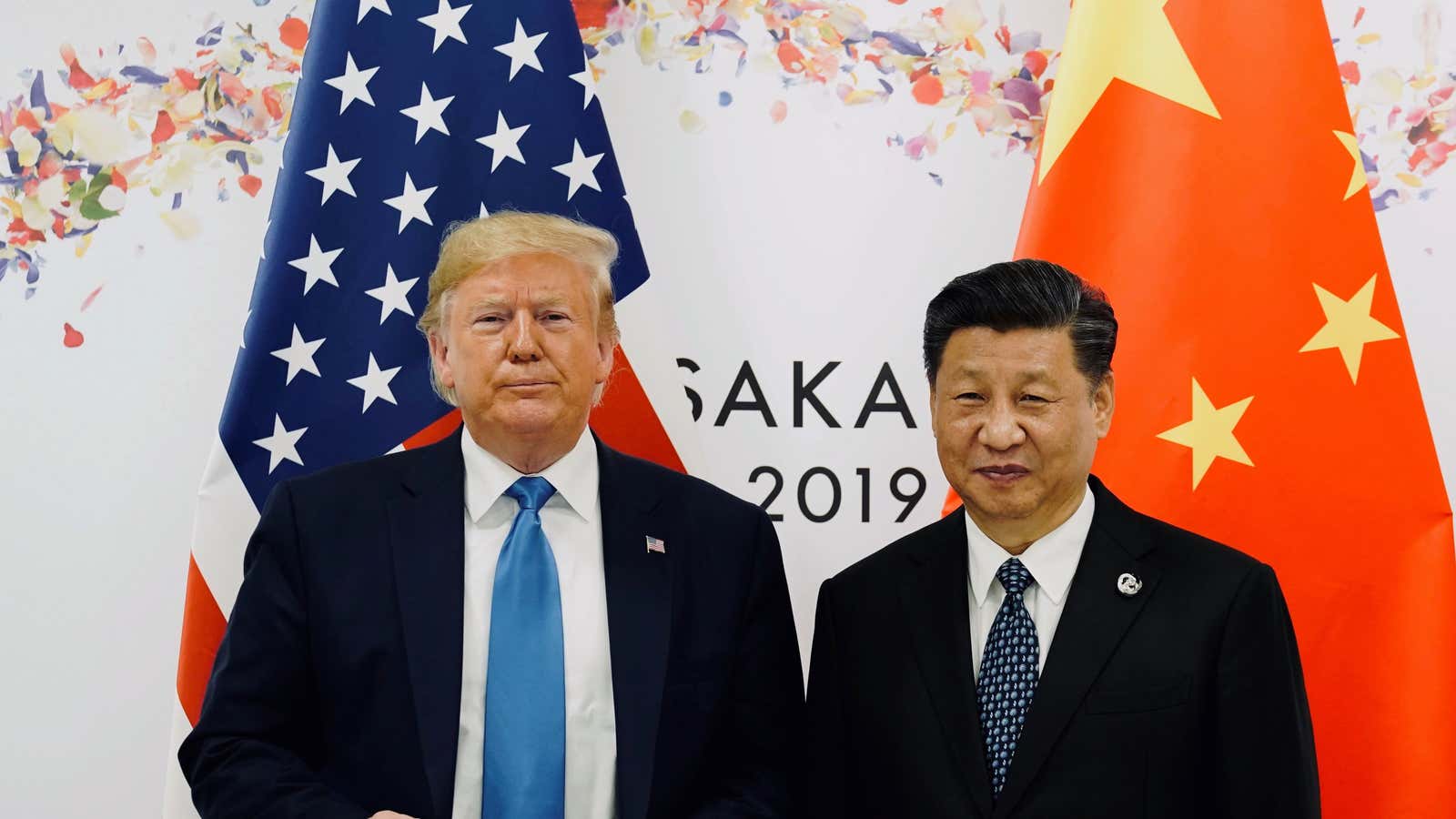As President Trump stares down an impeachment inquiry, it seems his administration has tried to deflect attention, using China as something of a red herring.
US stock market indexes dropped today after Bloomberg reported that the Trump administration was considering delisting Chinese companies. The Dow Jones Industrial Average dipped about 0.3% while the S&P 500 slipped approximately 0.5%. Chinese companies, however, fell further. E-commerce giants Alibaba and JD.com skidded 5-6%, while Chinese conglomerate Tencent slid 3%.
Although Trump has increasingly escalated the trade war through tariffs, his administration’s alleged threat to remove Chinese companies from US stock markets represents a new—and extreme—direction.
“In today’s world, plenty of capital is chasing limited investment opportunities around the world,” Minyuan Zhao, an associate professor of strategy at Washington University in St. Louis, told Quartz via email. “Cutting US institutions from such opportunities [would] not help the US.”
“The ‘Chinese companies’ listed in the US are usually ‘hybrid companies’ with foreign investments from the very beginning,” Zhao observed.
“Take Alibaba, for example. The top five shareholders are Blackrock (US), T. Rowe Price (US), and Baillie Gifford & Company (Scotland), alongside the two co-founders,” she wrote. “In earlier years, Softbank (Japan) and Yahoo (US) own[ed] almost half of Alibaba’s equity.”
Given that US investors own a sizable chunk of Chinese companies, Zhao wondered how the administration would determine if a company is “Chinese enough.” Rather than achieving a foreign policy objective, barring US investors from Chinese companies could artificially depress share prices and actually punish US investors more than anyone else.
“The US financial market is attractive to businesses all around the world because of its sophisticated institutions, and people’s trust in them. Any arbitrary restrictions from the administration will weaken, if not destroy, such trust,” Zhao asserted.
Despite the potential for self-harm, though, president Trump could very well delist Chinese companies. Gary Hufbauer, a senior fellow at the Peterson Institute for International Economics, told Quartz there’s a 30-40% chance of it happening.
Under 1977’s International Emergency Economic Powers Act, the Trump administration “has the power to tell pension funds [and others] not to buy Chinese shares, and tell stock exchanges not to list Chinese companies or to delist existing ones,” said Hufbauer in a phone interview. “The power is there,” he said, but the “political and market ramifications would be severe, as we’ve seen today.”
“If he were to do that, there would be questions as to whether he’s setting a precedent for other countries he doesn’t like,” Hufbauer said. He expressed mild concern that Trump could similarly play hardball with Europe and Airbus.
On a macroeconomic level, Hufbauer said, by prohibiting investment in Chinese companies, Trump could inadvertently strengthen the dollar and cause interest rates to fall further. If forced out from China, investors might park their funds in US Treasuries.
Ultimately, Hufbauer said, the Trump administration’s machinations appear, well, self-serving: “I think he’s trying to find anything he can to distract from impeachment.”
